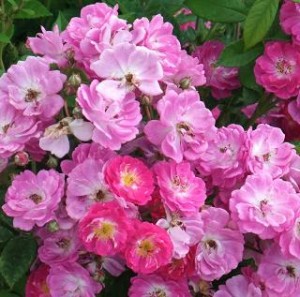
More evidence that low-calorie sweeteners are bad for your health
Studies show that artificial sweeteners can raise the risk of hypertension, metabolic syndrome, type 2 diabetes and heart disease, including stroke.

Natural Health News — A new study has found that edible flowers aren’t just a pretty garnish. They may actually be good for us
Edible flowers, which have been used in the culinary arts in China for centuries, are receiving renewed interest. Flowers can be used as an essential ingredient in a recipe, provide seasoning to a dish, or simply be used as a garnish. Some of these flowers contain antioxidant substances called phenolics that have been anti-inflammatory activity and are linked to a reduced risk of cardiovascular disease and certain cancers.
The findings of this study, published in the Journal of Food Science, show that common edible flowers have the potential to be used as an additive in food to prevent chronic disease, help health promotion and prevent food oxidisation.
The researchers used a range of standard tests to measure the antioxidant levels and antioxidant pootential of each flower. These measures can be different. For instance a food may have a high level of antioxidants, but if for some reason they are not active in the body, they are unlikely to be beneficial (for more on this see our article here).
They found that each of the ten common Chinese edible flowers studied had “high levels” of phenolic compounds, although a few stood out.
Tree peony (Paeonia suffruticosa) and Japanese honeysuckle (Flos lonicerae, also used in traditional Chinese medicine) showed the highest total phenolic content. The major phenolic compounds identified were gallic acid – which is also found in found in foods such as blueberries, apples, flaxseeds, tea, walnuts and watercress; chlorogenic acid — mostly found in green coffee beans; and rutin plentiful in buckwheat and asparagus. What is more the high phenolic content of these flowers also correlated with strong anti-oxidant potential.
In addition, although the China rose (Rosa chinensis) did not have the highest total amount of phenolics, it did have the one of the highest measures of anti-oxidant capacity.
“This study not only provides useful information about the health benefit of edible flowers for consumers, but also encourages researchers to utilise edible flowers as sources of phytochemicals,” say the authors in their conclusion. “In addition, the flower extracts have the potential to be used as additives in food to prevent chronic disease.”
They recommend that the antioxidant mechanisms, the anti-tumour, anti-inflammatory and anti-ageing activity of the edible flower extracts should be further our understanding and to help develop more applications as natural antioxidants.

Please subscribe me to your newsletter mailing list. I have read the
privacy statement